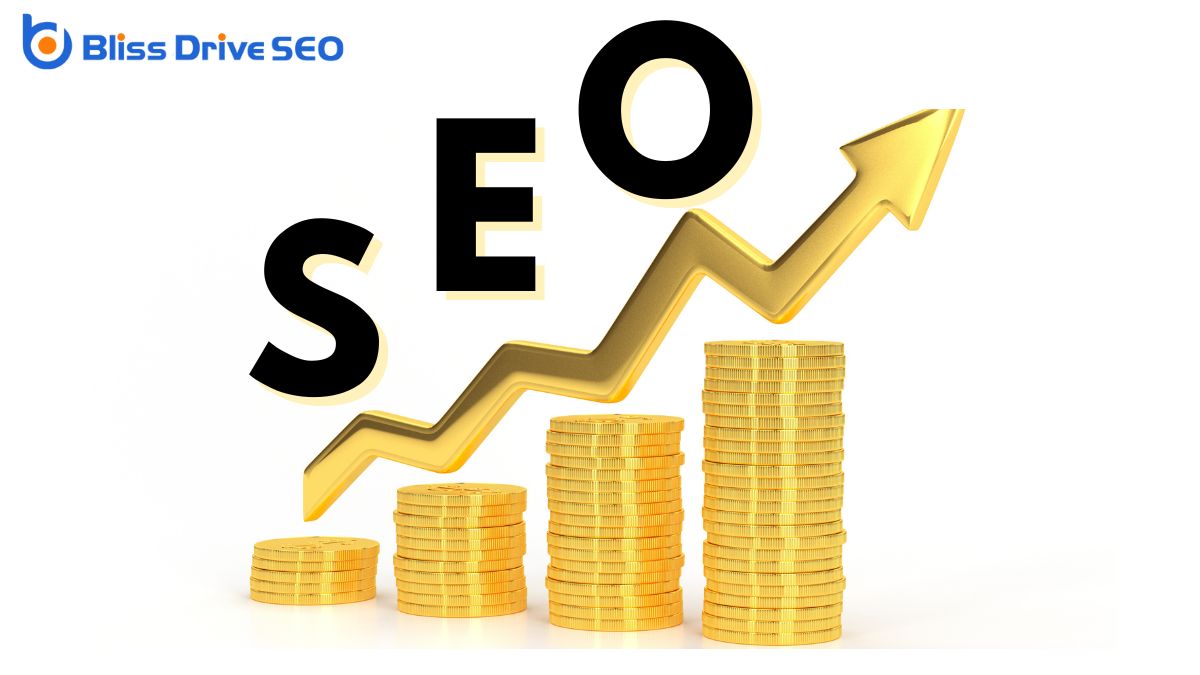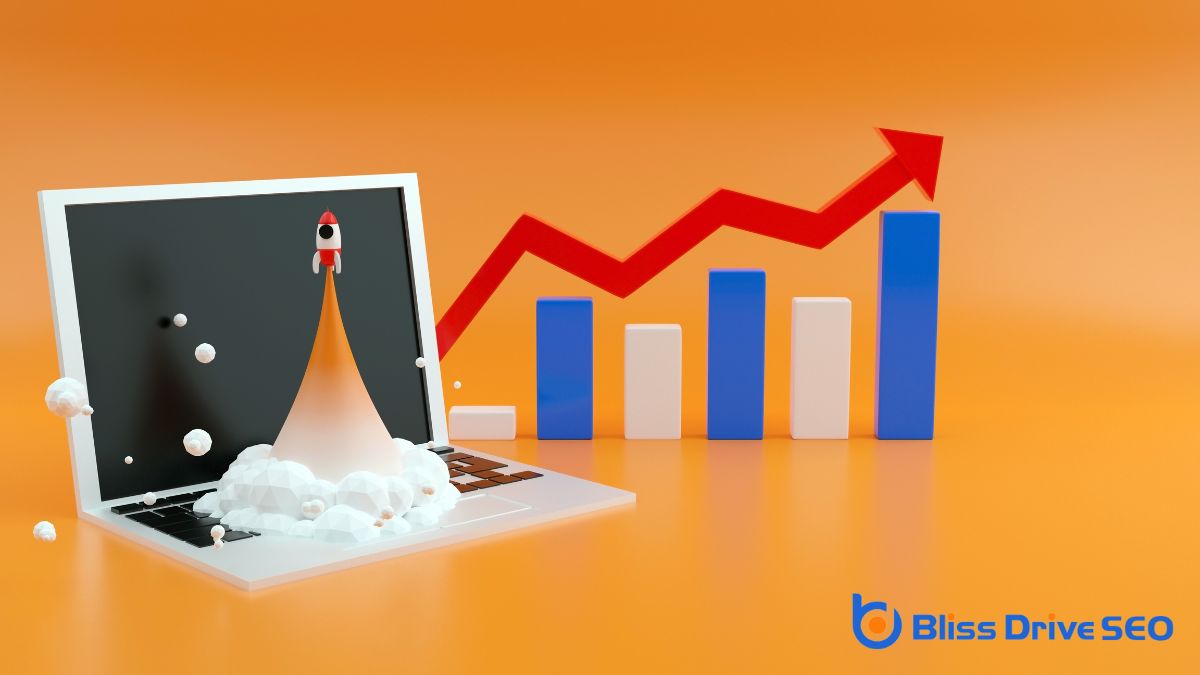Digital Marketing Services
Learn More About Us

When you're evaluating the profitability of SEO, it's crucial to assess the potential benefits in comparison to the initial investment. You may question whether the time and resources allocated to enhancing your website will produce significant returns. Applying successful SEO tactics can result in boosted natural traffic, increased conversionThe completion of a desired action by a referred user, such as making a purchase or filling out a fo... rates, and enhanced brand exposure. But how can you assess these results in relation to the expenses? Are the lasting advantages worth the dedication? Grasping these factors can be the secret to gaining a competitive edge in your industry. Let's delve into what makes SEO a potentially profitable endeavor.
Understanding SEO ROI is important for evaluating the value of your digital marketing efforts. You need to know if the time and resources you're investing in SEO are actually paying off. To calculate SEO ROI, you'll start by examining the revenue generated from organic search traffic. This involves tracking the conversions attributed to SEO, such as sales or leads, and comparing them to the costs incurred, like tools, services, and labor associated with your SEO strategy.
Begin by setting clear, measurable goals. These could be increasing website traffic, boosting brand visibility, or enhancing customer engagementThe level of interaction and involvement a customer has with a brand.. Next, use analytics toolsSoftware used to track and analyze website performance, user behavior, and marketing efforts. to track your progress. Google AnalyticsA web analytics service offered by Google that tracks and reports website traffic., for instance, offers insights into organic traffic and its impact on conversions.
You'll also want to calculate your SEO spend accurately. Include costs like staff salaries, agency fees, and any tools you're using.
To determine ROI, subtract your SEO costs from the revenue generated via organic search, then divide by those costs. Express this as a percentage to see the profitability clearly. Understanding these numbers helps you make informed decisions about where to allocate resources and how to optimize your strategy for better results.

When you focus on SEO, you can increase your organic traffic by targeting the right keywords and optimizing your content. This not only attracts more visitors but also enhances user experience, which keeps them engaged.
As a result, you improve conversion rates, turning more visitors into loyal customers.
To truly capitalize on SEO efforts, increasing organic traffic is essential, as it directly impacts both visibility and conversions. You want potential customers to find your website effortlessly when they search for products or services you offerThe specific product or service being promoted by affiliates.. By boosting organic traffic, you're not just driving numbers; you're attracting visitors with genuine interest, increasing the likelihood of conversions.
Start by optimizing your content with relevant keywords that match search intentThe purpose behind a user’s search query.. Use tools like Google Keyword Planner to identify what people are searching for and incorporate these terms naturally into your content.
Don't forget to create high-quality, engaging content that provides value to your audience. This can help you rank higher in search results, attracting more organic traffic.
Also, consider leveraging social media to amplify your content's reach. Sharing links on platforms like FacebookA social networking site where users can post comments, share photographs, and links to news or othe... or TwitterA microblogging and social networking service where users post and interact with messages known as "... can drive additional visitors to your site, increasing organic traffic over time.
Boosting natural traffic lays a strong foundation for your SEO strategy, but the real game-changer lies in enhancing user experience. It's not just about getting visitors to your site; it's about keeping them there and encouraging them to engage. User experience (UX)The overall experience a user has when interacting with a website or application, including usabilit... refers to how intuitive and enjoyable your website is for visitors. A positive UX can significantly enhance how users interact with your content, indirectly improving your site's SEO performance.
Start by optimizing your website's speed. Nobody likes waiting for a slow page to load, and search engines prioritize faster sites in their rankings. Ensure mobile-friendliness, as more users are browsing on their phones. A responsive designA web design approach that makes web pages render well on a variety of devices and window or screen ... means your site looks great on any device, enhancing overall UX.
Simplify navigation so users can easily find what they're looking for. Clear menus and a logical structure keep them engaged.
Also, consider the visual appeal of your site. Use high-quality images and a clean, readable design to make content more digestible.
Although attracting visitors to your site is essential, turning those visitors into customers is where the true value of SEO lies. You need to focus on improving conversion rates to truly harness the power of your increased traffic. Start by guaranteeing that your website's content aligns with user intent. When visitors find exactly what they're looking for, they're more likely to engage and convert.
Optimize your calls-to-action (CTAs) to make them compelling and easy to find. A well-placed, persuasive CTA can guide visitors toward taking the desired action, whether it's purchasing a product, signing up for a newsletterA regularly distributed email containing news, updates, and content relevant to subscribers., or requesting more information. Don't forget to test different variations of your CTAs to see what works best.
Next, enhance your site's loading speed and mobile responsiveness. A slow or hard-to-navigate site can frustrate users, causing them to leave before converting. Ensure smooth navigation and a seamless user experience on all devices.
When you consider SEO's cost-effectiveness, think of it as a long-term investment that keeps generating organic traffic well after initial efforts. This strategy not only reduces advertising costs but also gives you a competitive edge by improving your search engine rankings.
Embracing SEO means you're setting up your business for sustained growth and visibility.
Investing in SEO mightn't yield immediate results, but its long-range benefits make it a cost-efficient strategy worth considering. When you commit to an SEO plan, you're essentially planting seeds for future growth. Unlike paid ads, which stop delivering once your budget runs out, SEO efforts continue to drive value over time. As your site's authority builds, it becomes easier to rank for more competitive keywords without additional costs.
Think of SEO as a marathon, not a race. The initial investment may seem challenging, but the payoff comes with sustained effort. Over time, you'll notice improved search rankings and increased visibility, which leads to a higher return on investment. SEO's cost-effectiveness lies in its ability to maintain results with minimal ongoing expense.
Moreover, SEO helps build trust and credibility with your audience. As your site climbs the search rankings, users perceive it as more credible, making them more likely to engage and convert. This long-range strategy enhances your brand's reputation and fosters customer loyaltyThe likelihood of customers to continue purchasing from a brand over time..
To fully appreciate the cost-effectiveness of SEO, consider its ability to generate organic traffic, which is fundamentally free. Unlike paid advertising, which demands a continual financial outlay, organic traffic arises from your website's natural position in search engine results. By investing in SEO, you enhance your site's visibility, making it easier for potential customers to find you without any additional costs per click or impressionWhen an ad is displayed on a user’s screen.. This means once you've optimized your website, you can attract visitors consistently without ongoing advertising expenses.
When you optimize your content with relevant keywords, search engines can match your site to user queries more effectively. This increases your chances of appearing on the first page of search results, where most clicks occur.
The effort you put into SEO pays off over time as your site gains authority and credibility, drawing more organic traffic without additional spending.
Essentially, SEO acts as a long-term strategy for traffic generation, allowing you to build a sustainable presence online. While it might require initial time and effort, the ongoing benefits in terms of organic traffic make it a cost-effective approach compared to other marketing methods.
A significant advantage of SEO lies in its ability to provide a competitive edge in the crowded digital marketplace. When you invest in SEO, you're not just optimizing your website for search engines but also creating a cost-effective strategy to outperform competitors.
Unlike traditional advertising, which often requires hefty budgets, SEO focuses on organic growth. This means you're building a sustainable online presence that continues to attract customers without recurring costs.
With SEO, you can target specific keywords relevant to your industry, ensuring that your business is visible to potential customers actively searching for your products or services. This targeted approach means you're not wasting resources on uninterested audiences. Instead, you're efficiently reaching those most likely to convert, giving you a better return on investment.
Moreover, SEO helps establish your credibility. When your site ranks highly in search results, consumers tend to view your brand as more trustworthy. This trust translates into higher engagementThe interactions that users have with a brand’s content on social media. and loyalty, setting you apart from competitors who rely solely on paid ads.
When you focus on implementing a solid SEO strategy, you're setting your business up for long-term success. SEO isn't just about immediate results; it's about building a foundation that will benefit you over time. As search engines evolve, they recognize websites that consistently offer value, and that's where your efforts pay off. Here are some long-term benefits you can expect:
Building on the long-term benefits of a strong SEO strategy, enhancing brand visibility and credibility becomes a natural progression. When your website ranks high on search engines, it's more likely that potential customers will come across your brand. This increased visibility means more people are aware of your business, even if they don't make an immediate purchase.
Over time, this repeated exposure builds trust and familiarity, essential components of brand credibility.
SEO also positions your brand as an industry leader. When your content consistently provides valuable information and solutions, users view your brand as an authority. This perception boosts credibility and can leadA potential customer referred by an affiliate who has shown interest in the product or service but h... to increased customer loyalty. Consider your own experiences: you're more likely to trust and buy from brands that appear knowledgeable and reliable.
Additionally, positive customer reviews and backlinksLinks from other websites pointing to your website, crucial for SEO. from reputable sites enhance your brand's credibility. SEO helps highlight these testimonials and partnerships, further solidifying your brand's trustworthy image. Remember, in today's digital world, consumers research extensively before making decisions.
Achieving a competitive advantage in today's digital marketplace often hinges on a robust SEO strategy. By optimizing your website, you can enhance your visibility and outpace competitors who haven't yet capitalized on SEO's potential. A well-thought-out SEO plan doesn't just improve search engine rankings; it positions your brand as a leader in your industry.
Here's how SEO can give you an edge:
To stay ahead, you must continuously adapt your SEO strategies to changes in search engine algorithms and consumer behavior. Doing so not only strengthens your market position but also guarantees sustained growth and profitability.
While a strong SEO strategy gives you a competitive edge, understanding how to measure its success is key to maximizing its potential. You can't just set it and forget it; you need to know which metrics truly matter.
Start by focusing on organic traffic. It tells you how many visitors find your site through search engines. A rise in organic traffic often indicates that your SEO efforts are paying off.
Next, look at keyword rankings. Tracking the performance of specific keywords over time helps you see if your content is reaching the right audience. Consider using tools like Google Search ConsoleA tool by Google that helps monitor and maintain your site's presence in search results. to monitor these changes.
Conversion rates are also essential. It's not just about getting visitors; it's about converting them into customers. Calculate the percentage of visitors who complete a desired action, like signing up for a newsletter or making a purchase.
Don't forget the bounce rateThe percentage of visitors who leave a website after viewing only one page.. A high bounce rate might suggest that your content isn't engaging or relevant.
Lastly, examine your page load times. Fast-loading pages enhance user experience and can improve your rankings. By regularly analyzing these metrics, you can refine your SEO strategy for better results.

Explore real-world examples that showcase the power and profitability of a well-executed SEO strategy. By examining these case studiesIn-depth analyses of specific instances or examples to highlight success stories or lessons learned...., you'll gain insights into how businesses have transformed their online presence and reaped significant rewards. Take a look at these inspiring success storiesA feature on platforms like Instagram and Facebook where users can post photos and videos that disap...:
These examples reveal how strategic SEO efforts can lead to remarkable growth and profitability.
You've seen how SEO can be a game-changer for your business. By focusing on organic traffic and conversions, you can boost your revenue substantially. It's cost-effective and offers long-term benefits like increased brand visibility and credibility. With the right strategies, you gain a competitive edge. Don't forget to measure success with clear metrics to track your progress. Embrace SEO, and you'll likely enjoy sustainable growth and a solid return on investment.
